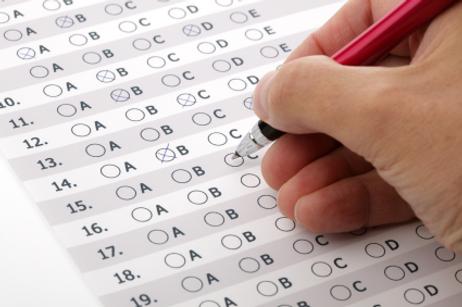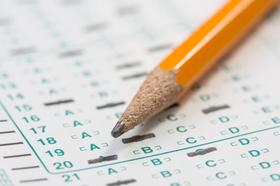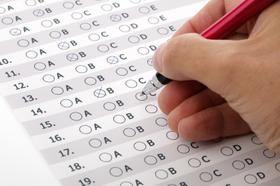Do Your Child's SSAT or ISEE Scores Really Matter?
Standardized admissions tests are part of the drill in most private school admissions offices. You may well be wondering why your child's academic transcripts and teacher recommendations from her current school are not sufficient. Why is it necessary to prepare and register for a standardized admissions test? The results of a standardized admissions test indicate to the school what your child knows and doesn't know academically. Essentially, it would serve no purpose to accept your child only to have her flounder academically. You would be unhappy. Your child would be miserable. The school would also be in a difficult position of being unable to deliver the academic results it can achieve. To avoid this losing situation, most private schools will insist on all applicants taking a standardized admissions test.
The two most commonly used admissions tests are the SSAT and ISEE. These tests measure your child's language and math skills. How do the admissions offices use the test scores the testing organizations send them? Primarily for comparison purposes. For example, if a school has an applicant pool with an average verbal score of 600 and yours is 700, you will be at the top of the list in that one aspect of all the factors the school looks at. Conversely, if your quantitative score is 550 and the pool average is 750, you will be at or near the bottom of the list in that comparison.
Remember that the admissions office looks at many things when it reviews your application. The results of standardized admissions tests are just one part of the picture. Schools tend to look at the whole picture, not just one part. For example, your child might score very well and not be accepted, while another applicant might have a lower test score and will be accepted. The admissions staff reviews all the components of your child's application and decides accordingly. If teacher recommendations corroborate the test score results, that is a very strong plus or minus for you. For example, if you scored well on the verbal section of the SSAT and your teacher writes glowing comments about your language arts skills, that will improve your chances significantly. The reverse is also true. A poor quantitative score combined with a weak or vague reference from your math teacher ("Johnny has challenges with his math lessons.") won't help your case.
This video offers some tips for SSAT prep.
Understanding your child's SSAT results
The founder of Prepped & Polished, Alexis Avila, states something that is essential for all of us to understand about test scores:
"Each school weighs SSAT scores differently according to its own standards and requirements; it is just one piece used in the decision-making process."
His helpful blog Know the Score on SSAT Scoring: What is a Good Score on the SSAT? will give you an overview of SSAT scores and what they mean.
Understanding your child's ISEE results
The ISEE consists of five sections: Verbal Reasoning, Quantitative
Reasoning, Reading Comprehension, Mathematics Achievement, and an Essay. The first four sections have multiple-choice answers while the essay is written. Scores for the first four sections of the ISEE are sent to the schools you select. The essay is not scored but is available only to schools via the ERB site. Individual schools assess the essays based on their criteria. Download and read carefully What to Expect on the ISEE.
While your educational consultant will be familiar with admissions tests and how they work, you also need to have a general understanding of what's involved. Even more importantly, you will see the wisdom of ensuring your child begins preparing for the tests well in advance. Input the search string "ISEE test prep" into Amazon.com to yield over forty results. The familiar Princeton Review and Kaplan books are listed, as well as many others.
The ERB staff has provided a page on their website which explains test results clearly. They also offer sample reports. I suggest that you review this material so that you understand what is involved.
This video explains the ISEE.
What's an acceptable score?
Now, let's circle back to that important question, namely, what score is acceptable? The short answer is that it depends on the individual schools. Each private school is unique, as you have come to know. There is no regional or national standard of admissions. Each private school decides what the admissions criteria are and makes admissions decisions based on their experience with those established criteria. Consequently, one school may know that applicants with a stanine score of 8 can handle the academic work involved in their particular curriculum. Another school may be comfortable with a lower score. Remember that your child's ISEE results are just one part of her overall admissions profile.
Many factors come into play when it comes to standardized tests. The most important advice any teacher will give your child is to start well in advance - like a year or so - assessing her strengths and weaknesses. Then, remediate those weaknesses. After that, have her take as many practice tests as possible before the test date. If she has never taken a standardized admissions test and has no clue what's expected of her, how can she relax and do her best? Remember: your child's nerves and health play a role too. Reassure your child that she will do well. You cannot pass or fail the ISEE or SSAT. Make sure that she gets a good night's rest before the day of the test.
To summarize, understand how the admissions tests work early in the school search process. Do not leave test preparation until the last minute. Six to eight months before the test date is not too early to start. That will allow you time to fix gaps in your child's knowledge and skill base. Then, all that will be left is to practice, practice, practice.
Questions? Contact us on Facebook or Instagram. @privateschoolreview
#SSAT #ISEE #StandardizedTests #SchoolAdmissions #PrivateEducation















